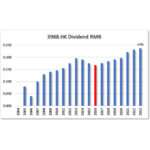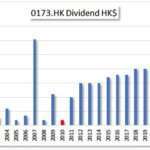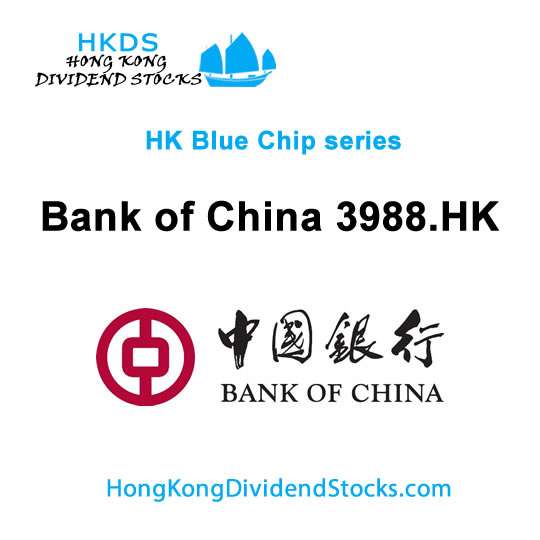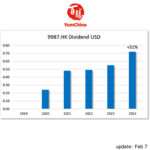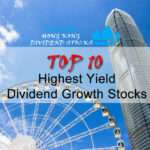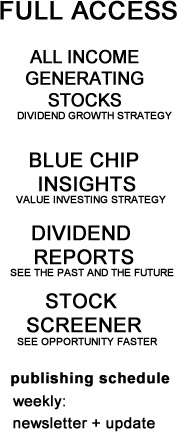Market Sentiment vs. Reality: Why Data Should Guide Your Stock Investments

Keep your head in the game. Market Sentiment vs. Reality: Why Data Should Guide Your Stock Investments.
A kind reminder.
When it comes to stock markets, there’s a constant tug-of-war between market sentiment and company fundamentals. We often find ourselves at an edge, trying to withhold acting based on the hype surrounding a stock or to go back to the basics and rely on hard numbers that reflect the company’s actual performance.
This is especially true in volatile times like what we are experiencing this week looking at the Hong Kong stock market, where economic stimulus measures and investor emotions can drive prices up (or down) rapidly.
A recent example of this dynamic is HKG:0960 Longfor Group Holdings, a major Chinese property developer whose stock price surged over 9% in late September 2024 despite ongoing financial struggles. The sudden boost in share price was largely attributed to the positive market sentiment driven by Beijing’s stimulus measures aimed at stabilizing the real estate market. However, the company’s fundamentals tell a different story—its revenue has been declining significantly over the past year.
Find Out which of the Hong Kong Stocks Have Dividend Growth Potential—Skip Hours of Research |
Let’s look at both sides of the argument: the case for market sentiment and the case for company fundamentals. We’ll also look at the impact of FOMO (Fear of Missing Out) on our decisions and arrive at the conclusion that relying on data and fundamentals is the smarter, more sustainable approach to stock investing.
The Case for Market Sentiment
Market sentiment refers to the overall attitude of investors toward a particular stock or market. It’s often driven by external factors like news, economic policies, and even social media trends. When the market is bullish, investors are optimistic and tend to buy more stocks, driving prices higher. Conversely, in a bearish market, negative sentiment can lead to panic selling, dragging prices down.
In the case of Longfor Group, the recent surge in stock price was fueled by optimism surrounding the Chinese government’s stimulus measures. Investors saw this as a signal that the real estate market might stabilize, leading to a flurry of buying activity. This phenomenon is common in markets like Hong Kong, where policies from mainland China have a direct impact on investor behavior.
There’s no denying that market sentiment can lead to short-term profits. If you had bought Longfor shares right before the government announced its stimulus package, you would have seen a quick gain as the stock price soared. Some investors thrive in this environment, using their intuition to time the market and profit from short-term movements.
The Case Against Market Sentiment
However, relying on market sentiment alone can be risky. It’s inherently speculative and often detached from the company’s actual financial health. The recent rise in Longfor’s stock price, for example, is in stark contrast to its fundamentals. The company’s revenue has dropped nearly 24% over the past year, and it continues to face challenges due to China’s broader real estate crisis.
The danger of basing decisions on market sentiment is that it can lead to irrational exuberance—a situation where stock prices are inflated well beyond what the company is worth. Eventually, reality catches up, and stock prices crash, leaving sentiment-driven investors holding the bag. This is particularly concerning in sectors like real estate, where structural issues—such as oversupply and high debt—cannot be solved overnight by stimulus measures.
Longfor’s recent price surge is a perfect example of how market sentiment can mislead investors. While the stock price has gone up, the underlying issues that caused the company’s revenue to decline haven’t been resolved. This creates a bubble-like scenario where prices are artificially high, and investors who buy in without looking at the fundamentals could face significant losses when the bubble bursts.
The Role of FOMO in Market Sentiment
A key driver of market sentiment is FOMO—the Fear of Missing Out. Investors often feel pressure to buy stocks when they see prices rising rapidly, fearing they’ll miss a profitable opportunity. This psychological phenomenon can cause even the most rational investors to make impulsive decisions.
In the case of Longfor Group, FOMO likely played a significant role in the recent buying frenzy. As soon as the government’s stimulus measures were announced, investors rushed to buy shares, pushing the price up. The problem with FOMO-driven decisions is that they’re based on emotions rather than data. Investors who gave in to FOMO and bought Longfor at its peak might find themselves regretting it if the stock price corrects.
FOMO can be particularly dangerous in volatile markets like Hong Kong, where stock prices can swing dramatically based on news from the mainland. While it’s tempting to jump on the bandwagon when a stock is rising, it’s important to remember that the market can turn just as quickly.
The Case for Company Fundamentals
In contrast to market sentiment, company fundamentals provide a more stable, long-term approach to stock investing. Fundamentals refer to the financial health of a company, including metrics like revenue growth, profit margins, debt levels, and cash flow. These are the factors that determine whether a company is sustainable and can generate returns for investors over time.
Longfor Group’s fundamentals paint a much less optimistic picture than its recent stock price suggests. The company’s revenue has declined by nearly a quarter over the past year, and it continues to face significant challenges due to the broader issues in China’s real estate market. While market sentiment might temporarily boost the stock price, these underlying issues need to be addressed for the company to perform well in the long run.
For investors focused on dividend growth stocks, fundamentals are especially important. A company with strong financials is more likely to maintain and increase its dividend payouts over time, providing a steady income stream for investors. On the other hand, a company with declining revenues and high debt may be forced to cut its dividend, leading to losses for shareholders.
The Case Against company fundamentals
Well, it is boring. Getting the numbers in order to see what is going on and what might come ahead. It is boring, unsexy
The Role of Data-Driven Decisions
Using data to guide your investment decisions is the most reliable way to achieve long-term success in the stock market. While market sentiment can create short-term opportunities, it’s often speculative and unpredictable. By contrast, fundamentals are grounded in the company’s actual performance, providing a clearer picture of its long-term potential.
For investors in Hong Kong dividend stocks, it’s crucial to focus on companies with strong balance sheets, consistent revenue growth, and a history of increasing dividends. These are the companies that can weather economic storms and continue to deliver returns, even when market sentiment turns negative.
Conclusion: Data Over Hype (for better health)
The recent surge in Longfor Group’s stock price is a textbook example of how market sentiment can drive stock prices higher, even when the company’s fundamentals are weak. While some investors may profit from these short-term price movements, the risk of buying into overvalued stocks is high.
In the end, relying on data and fundamentals is the smarter approach to investing. By focusing on companies with solid financials and long-term growth potential, you can avoid the pitfalls of FOMO and market hype. In a volatile market like Hong Kong, where external factors can create sudden price swings, data-driven decisions are the key to long-term success.
Disclaimer: No way this is investment advise. Here we took HKG0960 Longfor, and made it an example.
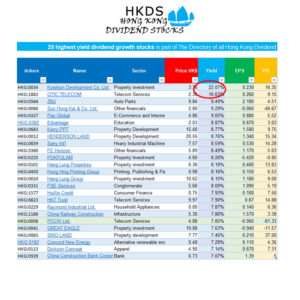
Sign up now and get immediate access to
25 highest yield dividend growth stocks.xls
The Best Part?
It’s completely free. No catch—just honest, data-driven insights that arm you with a consistent approach to dividend growth investing.


